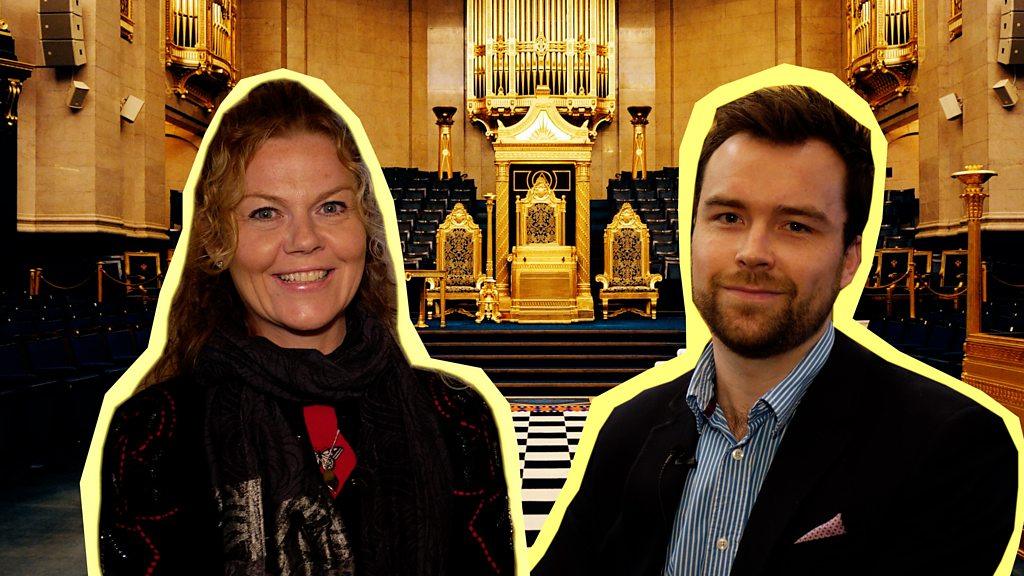Freemasons: Leaders tackle the myths behind the 'secret' organisation
- Published
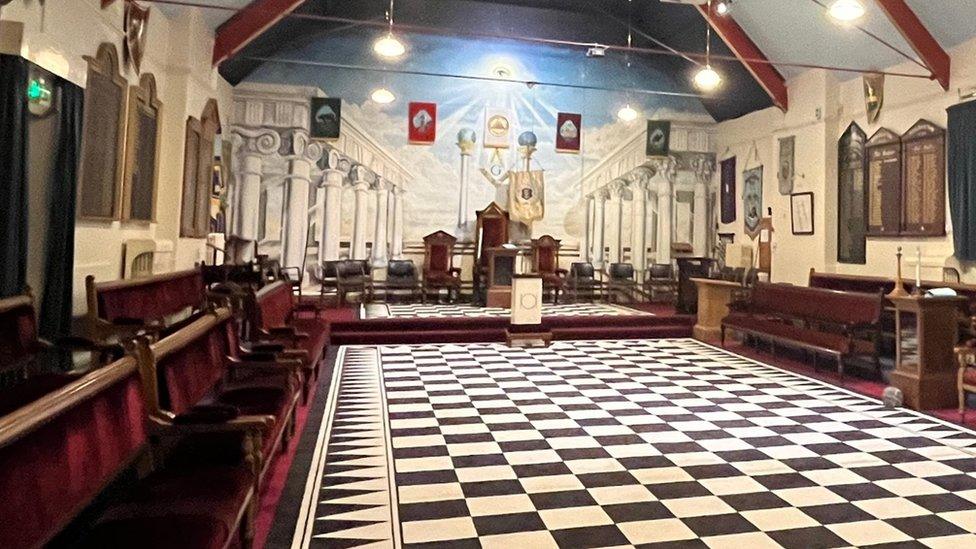
The lodge room at Hull Masonic Hall
The Freemasons are sometimes seen as a secret society filled with special handshakes, hidden symbols and shadowy figures pulling the strings.
To try and answer some of the common questions about what goes on in the organisation, BBC News' Kevin Shoesmith met members at Hull's Masonic Hall.
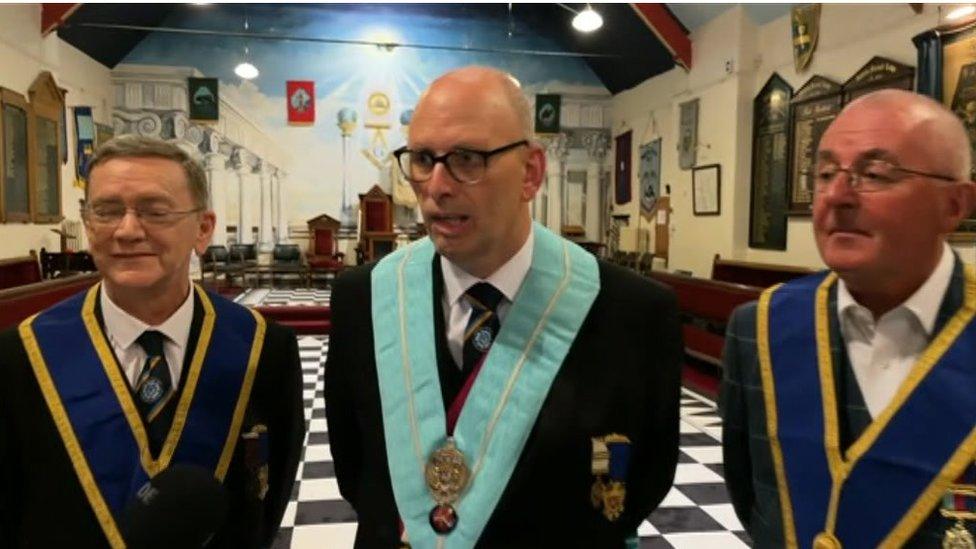
Freemason (from left) Neil Armstrong, Marcus Whereat and Jim Kerr
What is Freemasonry?
Neil Armstrong, the grandly-titled past provincial grand sword bearer, said Freemasonry was "a band of men who believe in treating everyone equal".
He said members of the group also did "charitable work" and claimed it was the largest donor to charity after the lottery.
Mr Armstrong said Freemasonry "originated with the stonemasons when they used to build all the cathedrals".
He added: "They had temporary building at the side of the cathedrals, which were called lodges, so they could work in inclement weather. A lot of our symbolism is related to architecture and masonry."
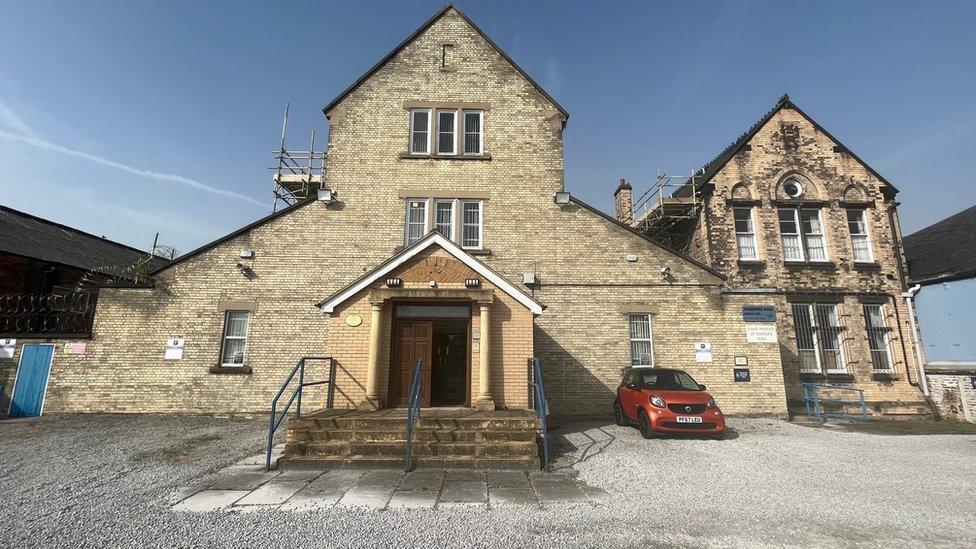
The BBC was invited into Hull Masonic Hall in East Yorkshire
Do you have a special handshake?
Jim Kerr, a past provincial senior grand warden, said contrary to popular belief there wasn't just one handshake, in fact, "several handshakes" exist.
"They go back to the early days when we were all stonemasons, and if I was a stonemason going from the south to the north to build a cathedral, when I got to a new site I had to prove to the foreman I was a master mason.
"To do that, I had to demonstrate that by a password and a specific hand-grip because very few people were writing."
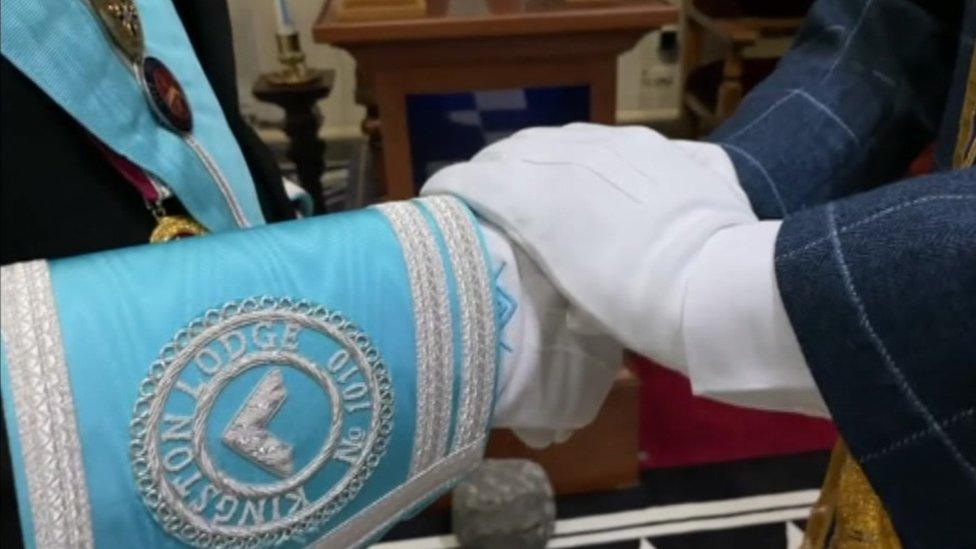
Freemasons demonstrate one of several handshakes
Mr Kerr explained there were specific handshakes "for each of the degrees (or ranks)" through which Freemasons pass.
He was willing to show one handshake, adding "it isn't a huge secret; it's simply a passport".
Demonstrating, he placed his left hand over the linked hands.
"We always cover it with the proof," he added, prompting the obvious question - why? "To prevent the eyes of the insidious," he replied.
We pressed Mr Kerr on how, specifically, handshakes varied, inquiring if fingers moved in a particular way but he laughed.
He refused to be drawn on that.
Are you really as secretive as people think?
"No", replied Mr Armstrong. "We are very open.
"The secrecy was because of the last war when Nazi Germany persecuted Freemasons and they went underground."
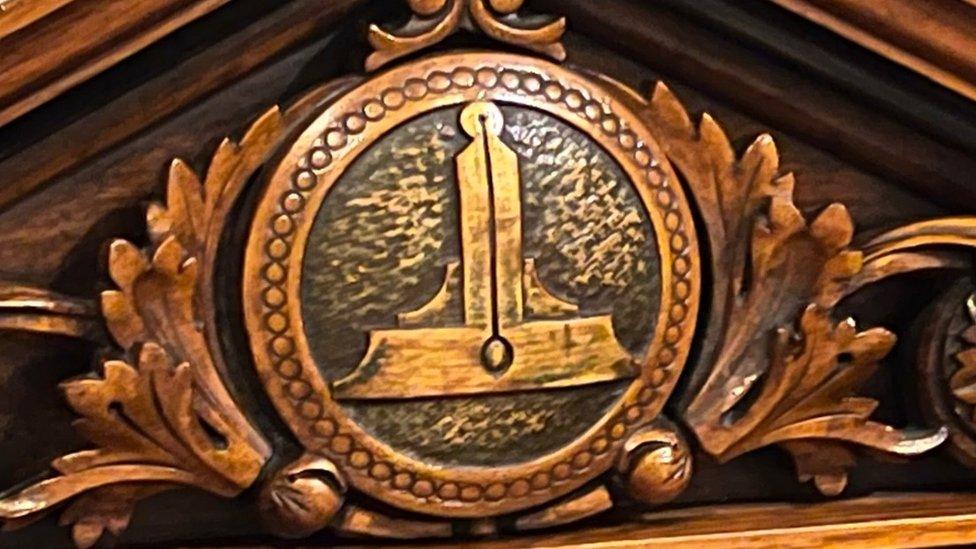
Symbols can be found throughout the lodge room
Are you secretly running things?
Marcus Whereat, a past provincial grand steward, denied this.
He stated: "No - we're not secretly running things. Everything we do is for our own personal improvement."
What about all the regalia?
Mr Armstrong said the regalia is "put on prior to coming into the lodge room".
Mr Whereat added: "We all wear an apron. Our aprons are different colours, depicting where you are within Freemasonry.
"As an entered apprentice, you would have a plain white apron, and as you go through the various degrees and onto provincial offices the colours change."
The aprons also come with a collar.
Mr Whereat said it typically took "seven to eight years" to progress to master of the lodge.
However, on an "initiation evening" Mr Kerr said the candidate would be expected to wear a linen suit.
"He will have his trouser legs rolled up to demonstrate that he is freeborn and there are no manacles," he said.
"He will have his naked left breast showing to prove he is male and he will have his right arm sleeve rolled up."
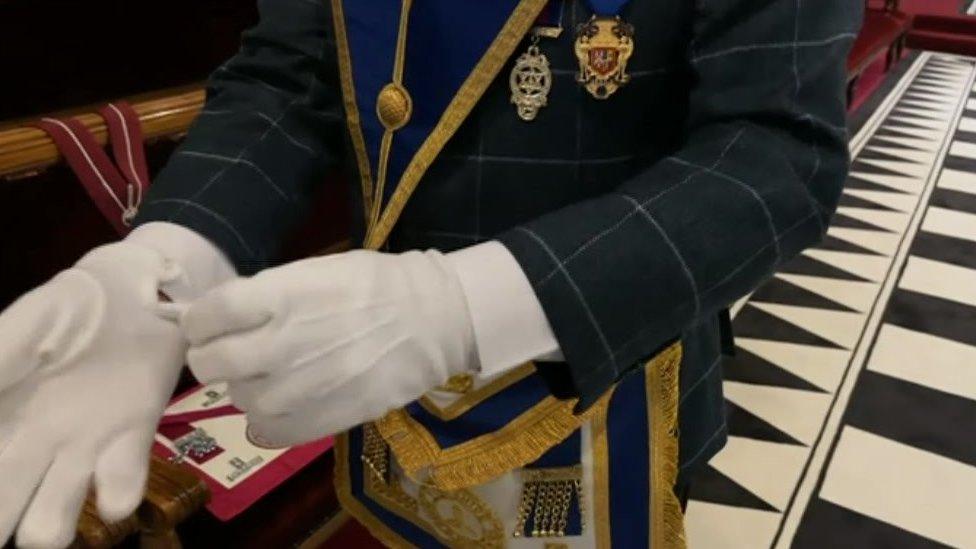
Freemasons wear gloves to symbolise equality
Are women allowed to join?
Hull Masonic Hall is home to male-only lodges.
However, Mr Kerr pointed out Freemasonry is now open to woman, with "female lodges" in Driffield and Bridlington.
Do you have hidden symbols everywhere?
At the front of the lodge room, on the wall, is the "all-seeing eye".
Mr Whereat said: "It's nothing sinister. All that depicts is that the great architect of the universe is forever watching over you, looking after you."
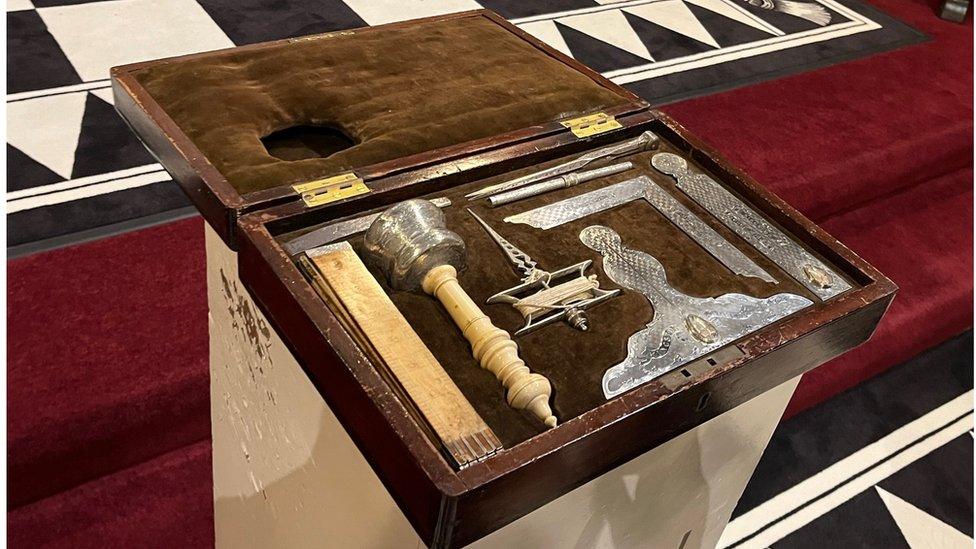
Masonry instruments and symbols on display in the lodge room
Symbols "and certain tools" - all linked to stonemasonry - are used during ceremonies, he said.
Inside the lodge room, there were two stones - a rough ashlar and a 'perfect' ashlar.
Mr Whereat said: "The rough ashlar denotes when we first enter Freemasonry; the smooth ashlar represents the skills you have maintained through your life, through Freemasonry."
Do you have to be 'recommended' by someone you know to get in?
"Yes," said Mr Armstrong.
A candidate has to be proposed and seconded.
That said, people who wish to express an interest in joining their ranks are free to register an expression of interest via the Freemasons' website.
The Masonic Hall in Beverley Road, Hull, will be open to the public from 10:00 BST to 13:00 BST on Saturday.

Follow BBC East Yorkshire and Lincolnshire on Facebook, external, Twitter, external, and Instagram, external. Send your story ideas to yorkslincs.news@bbc.co.uk, external.
- Published14 March 2012
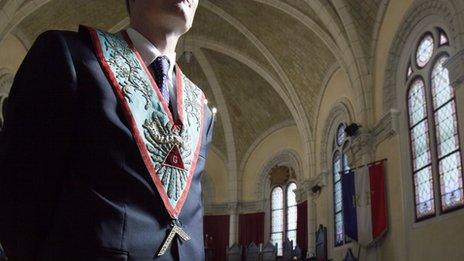
- Published12 May 2021
